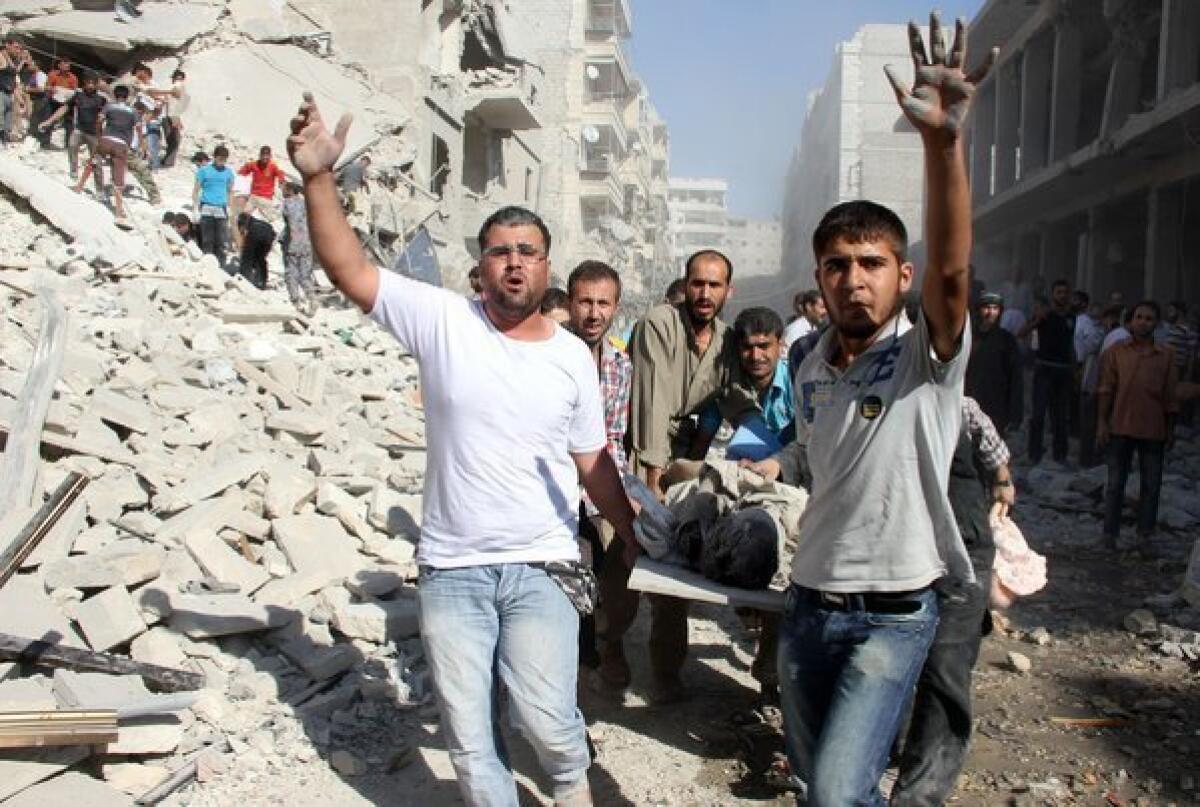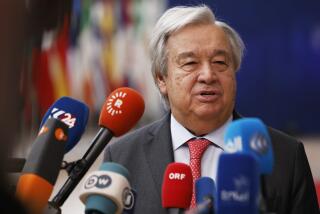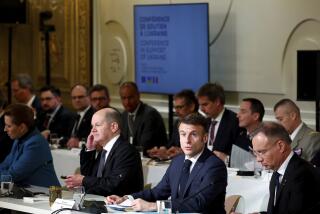Britain, France press for intervention in Syria

- Share via
LONDON -- The drumbeat for Western intervention in Syria, including possible military strikes, grew louder Monday in Europe, mostly at the urging of Britain and France.
The two nations also led the European response to the war in Libya, but this time even Germany, which sat out that conflict, has thrown its support behind a forceful response.
British Prime Minister David Cameron cut short a vacation to convene an emergency meeting of security advisers Tuesday or Wednesday and may summon Parliament from its summer recess. His foreign secretary, William Hague, declared Monday that a mandate from the United Nations was not necessary for the West to act, a clear poke in Moscow’s eye.
“The United Nations Security Council … has not been united on Syria; it’s not shouldered its responsibilities on Syria, bluntly [put],” Hague told the BBC. “Is it possible to respond to chemical weapons without complete unity on the U.N. Security Council? I would argue yes, it is. Otherwise, of course, it might be impossible to respond to such outrages.”
In France, President François Hollande said the West’s response “will be decided this week” and could encompass airstrikes, toughened sanctions and arming of the rebels fighting Assad’s regime.
“We will also leave a little time for the diplomatic process, but not too much time,” Hollande told the newspaper Le Parisien. “We cannot not react to the use of chemical weapons.”
Hollande spoke to President Obama late Sunday and told him that France, like Britain, would be at his side if “an action of force” was decided upon.
Yves Boyer, deputy director of the Foundation for Strategic Research, a Paris think tank, said he doubted any action would take place this week while world leaders waited for a report from U.N. weapons inspectors investigating the accusations that chemical weapons were used last week.
“The least we could do would be to have targeted airstrikes against the three sites where the chemical weapons are stored and destroy these sites and those who control them,” Boyer said.
“While this is the least we could do, it is also the most we can do,” Boyer added. “We would not want to go further and enter into a very complicated situation that could go very wrong. China is already reluctant and Russia has chosen its camp. Add in Saudi Arabia, Iran, and we have every interest not to go into Syria.”
In Germany, Foreign Minister Guido Westerwelle said Monday that Berlin would consider any use of chemical weapons in Syria as a “crime against civilization.”
“If such a use were confirmed, the global community must act,” Westerwelle said. “Germany would be among those who consider it right that there be consequences.”
ALSO:
Deadly raid could derail Israeli-Palestinian talks
As Bo Xilai’s trial ends, he accuses witness of love triangle
Snowden’s Moscow stay an accident, Russian paper reports
Twitter: @HenryHChu
Times staff writer Chu reported from London and special correspondent Willsher from Paris.
More to Read
Sign up for Essential California
The most important California stories and recommendations in your inbox every morning.
You may occasionally receive promotional content from the Los Angeles Times.











